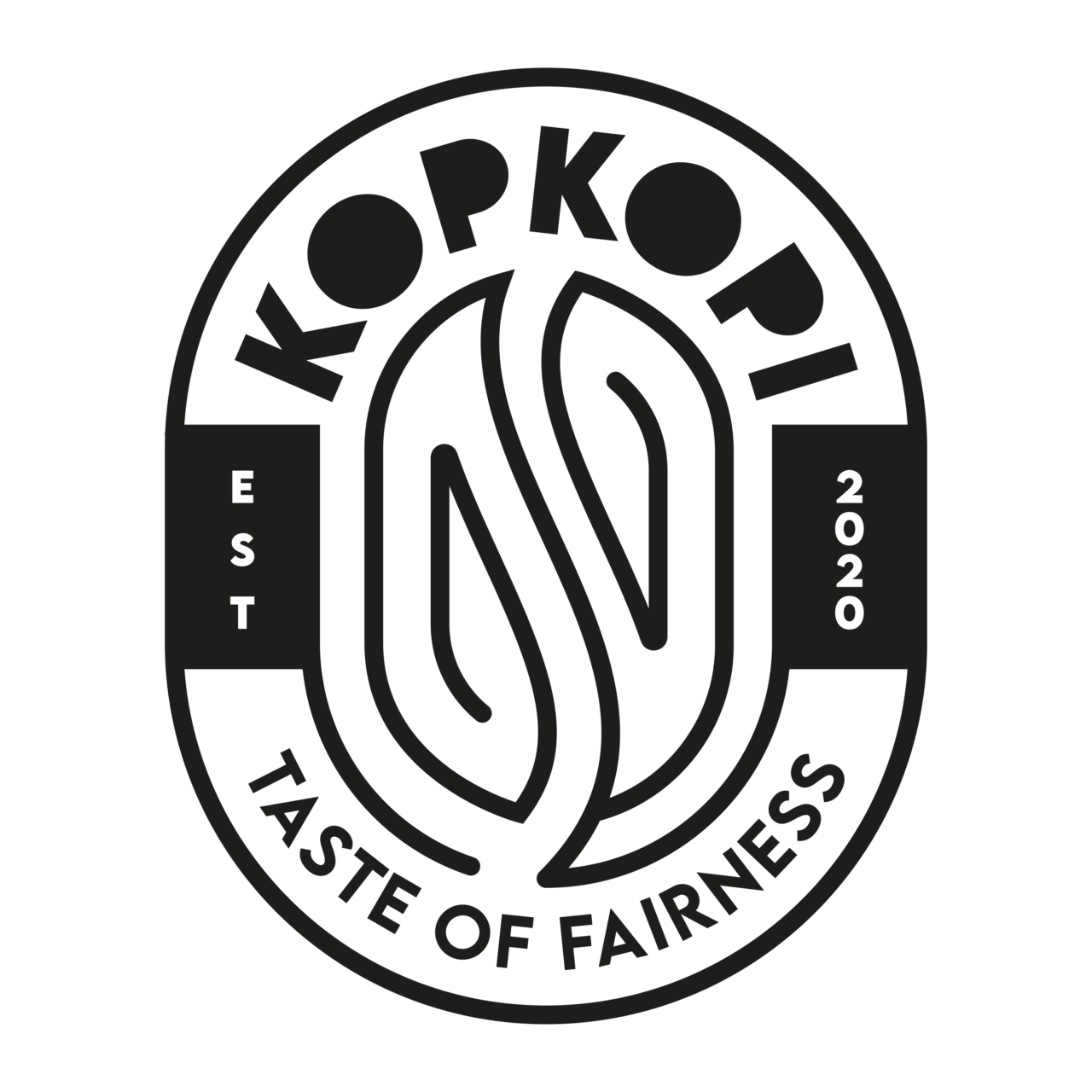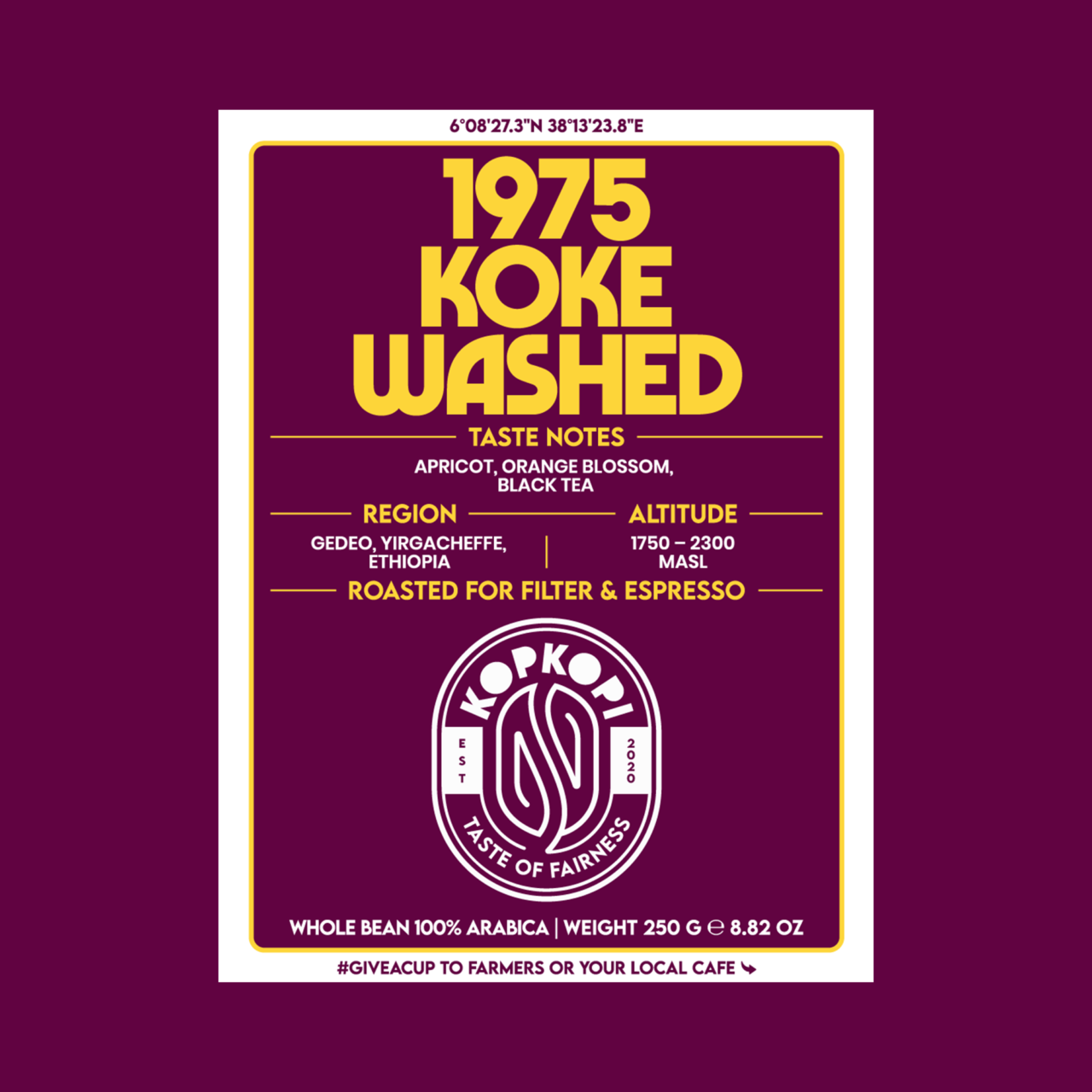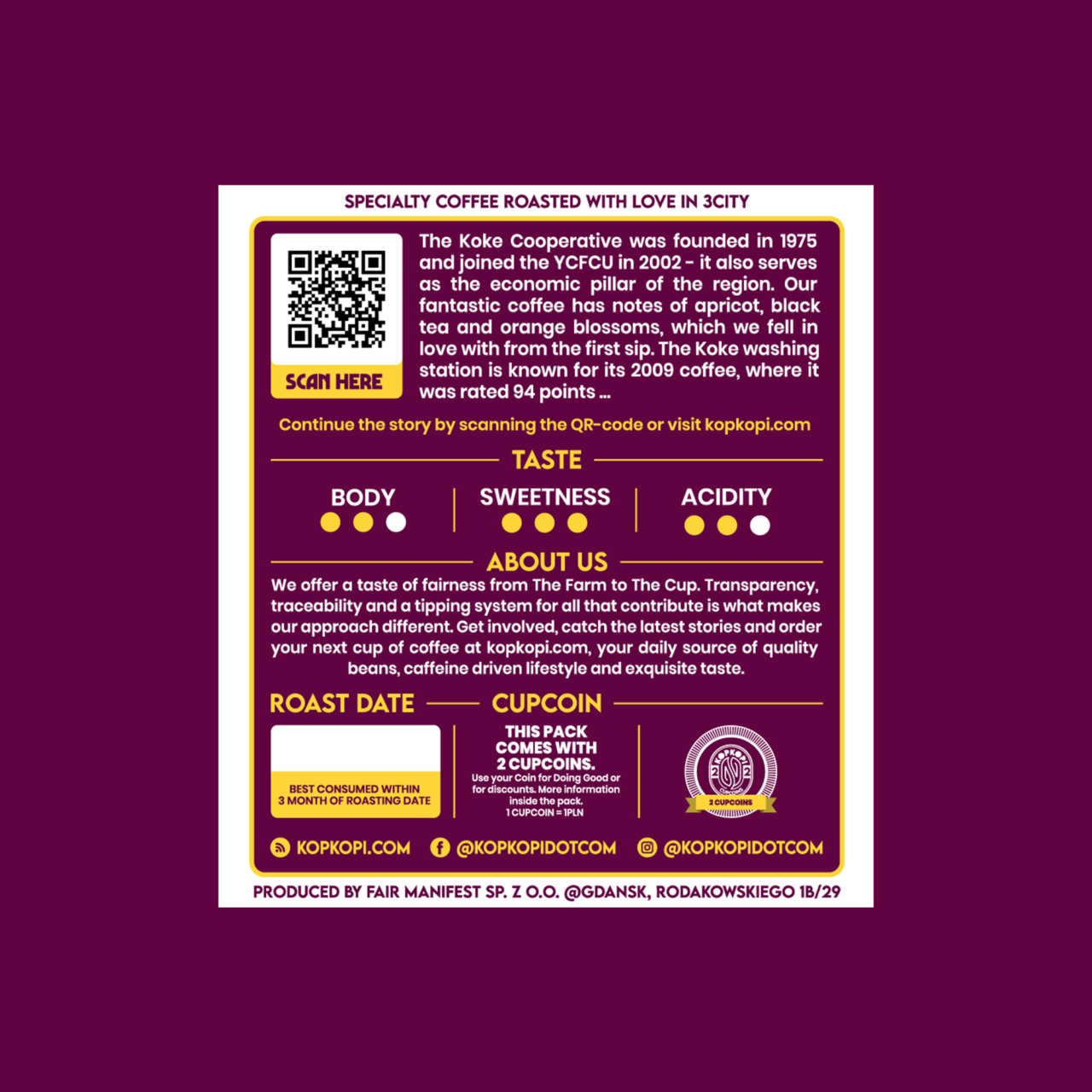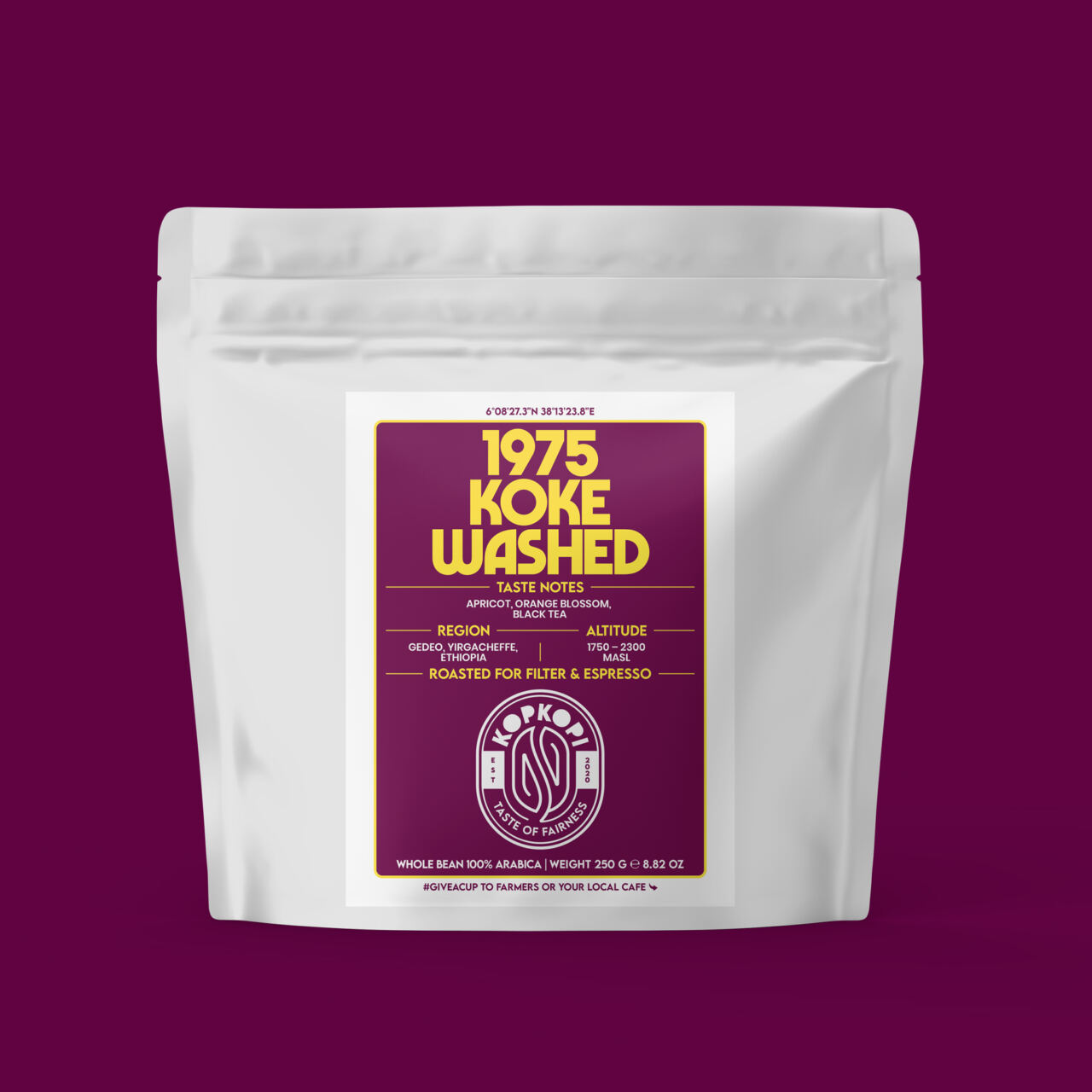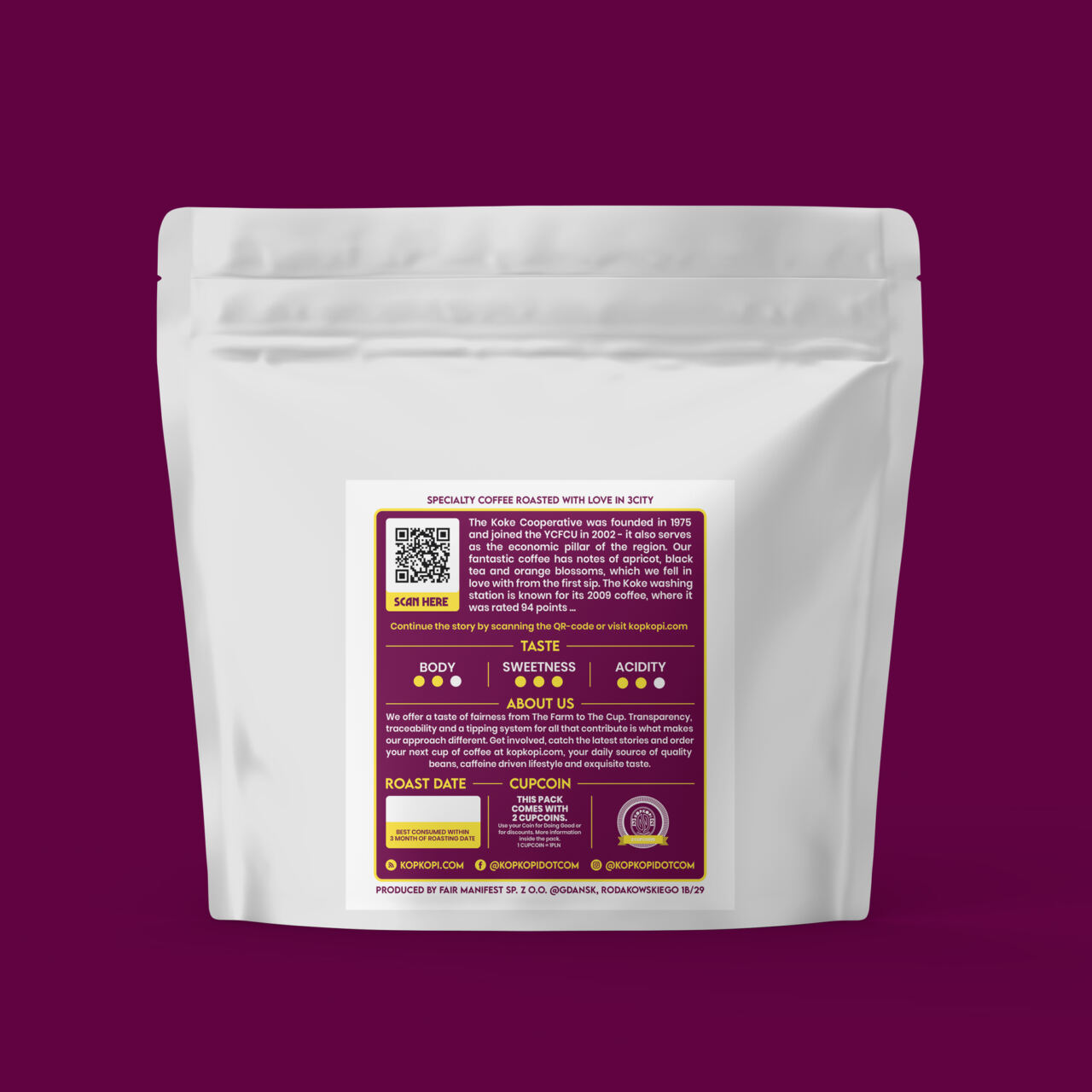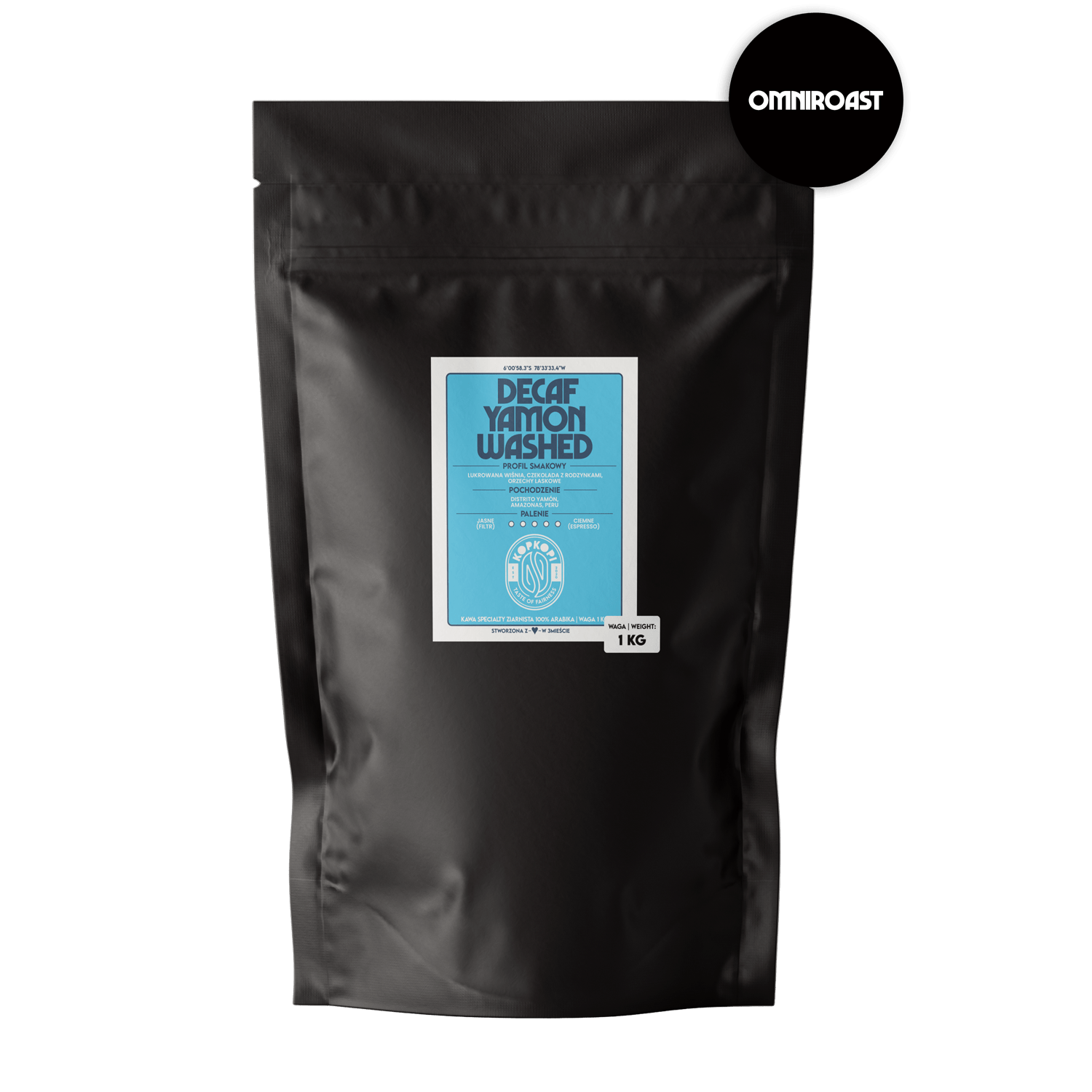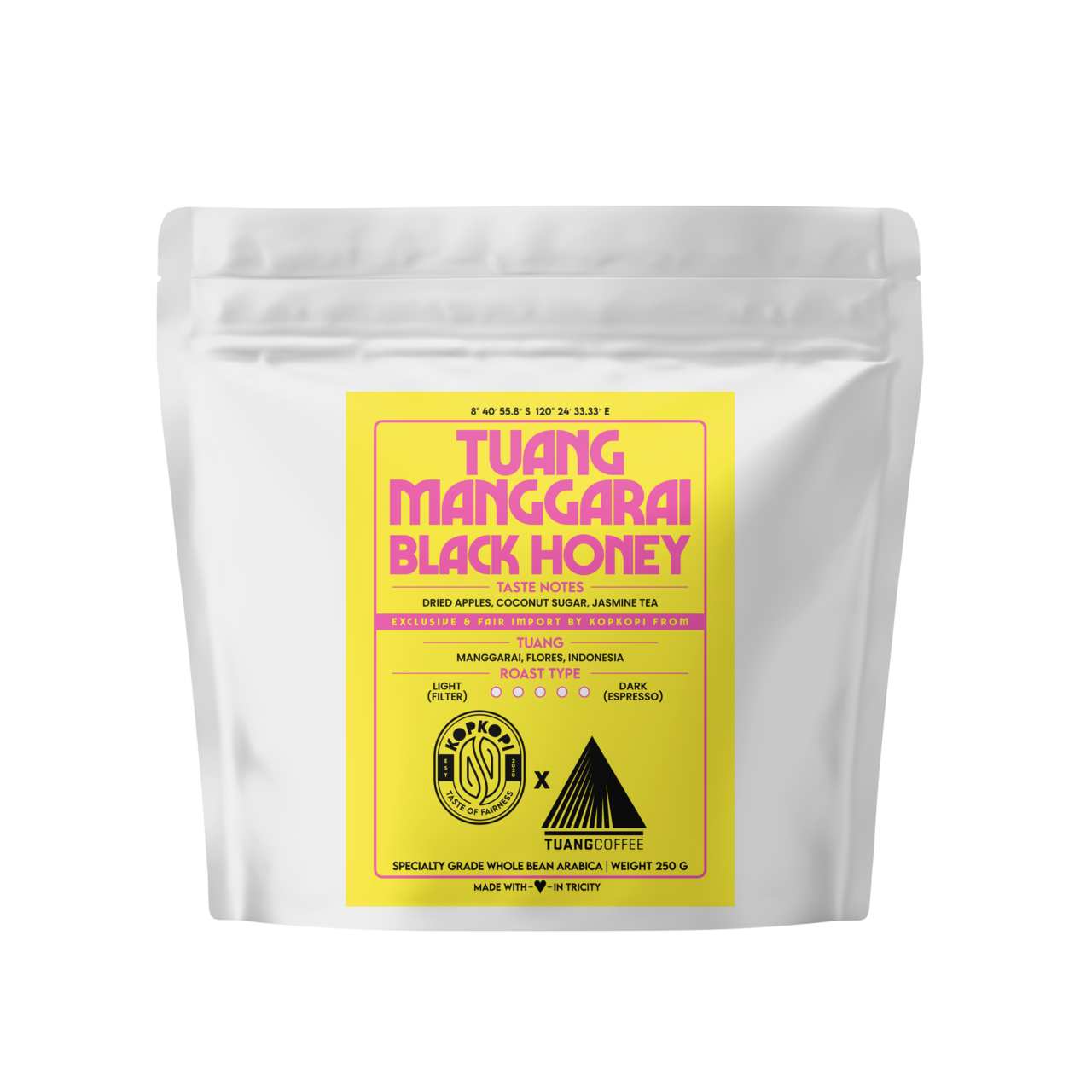Ethiopian 1975 Koke Washed for Filter
Out of stock
zł45,00
Our delicious Ethiopian specialty coffee – 1975 Koke Washed, roasted for filter. Buy now and enjoy your perfect cup of Ethiopian beans!
The Koke Cooperative was founded in 1975 and joined the YCFCU in 2002 – it also serves as the economic pillar of the region.
Our fantastic coffee has notes of apricot, black tea and orange blossoms, which we fell in love with from the first sip.
The Koke washing station is known for its 2009 coffee, where it was rated 94 points.
| Weight | 0.250 kg |
|---|---|
| Dimensions | 20 × 30 × 10 cm |
| COORDINATES | 6°08'27.3"N 38°13'23.8"E |
| COUNTRY | ETHIOPIA |
| SCORE | 84.75 |
| REGION | Yirgacheffe |
| SUB-REGION | Gedeo |
| ALTITUDE | 1750 |
| PROCESS | |
| TASTE NOTES | APRICOT, BLACK TEA, ORANGE BLOSSOM |
| BODY | MEDIUM |
| SWEETNESS | HIGH |
| ACIDITY | |
| BREW METHODS | AEROPRESS, DRIP, FRENCH PRESS, MOKAPOT |
| VARIATAL | |
| ROAST DATE | |
| Package size | 250 grams |
About this PRODUCT
Our delicious Ethiopian specialty coffee – 1975 Koke Washed, roasted for filter. Buy now and enjoy your perfect cup of Ethiopian beans!
The Koke washing station is named for the Koke kebele, or town, where it is located in the Yirgacheffe district of the Gedeo Zone. The family-owned Koke washing station was built in 2011 and has seen many improvements since 2015, when the washing station staff began providing guidance to contributing producers regarding steps to increase coffee quality.
The Koke station stands on the side of a hill, with coffee grown above and below the station. For the last three years, the Koke station managers have been separating out the higher elevation cherries, and the quality clearly shows. 96 small scale farmers provided cherries to Koke this harvest most of them multi-generational family farmers.
About the Producer
The Yirgacheffe Coffee Farmers Cooperatives Union (YCFCU), located in southern Ethiopia, was founded in 2002. It has grown to represent 23 member cooperatives which includes more than 300,000 families. In this region, 62,004 hectares are dedicated to coffee alone. Grown alongside bananas and maize, forest canopy, organic fertilizers and a temperate climate produce a very high quality bean.
Coop Coffees started sourcing from YCFCU in 2013 and has established direct relationships with some of the cooperatives including Idido, in the district of Yirgacheffe, and Hama, in Kochere. We have purchased washed coffees from the Idido Cooperative, which delivers some of the best quality coffee in the region. From Hama, we have purchased both washed and unwashed (natural) coffees. Hama joined YCFU in 2007 in order to get access to a market that is more focused on quality, and to receive some support to produce a better quality coffee.
YCFCU is working very hard to be proactive in terms of promoting quality. Premiums (over ECX ) to farmers based on coffee grade is a measure that they are implementing to increase the quality of coffee. YCFCU now has its own processing facility in Addis, but still no lab, sometimes using the SCFCU lab. In 2014-15 they planned to export approximately 220 containers of high quality coffee to markets around the world.
Yirgacheffe is considered by many to be the birthplace of coffee and the coffee trees grown in the region are a naturally occurring mix of heirloom varietals cultivated among other species in coffee gardens and coffee forests. Washed Coffee was introduced to Ethiopia in the 1970’s, and Yirgacheffe was the location of the first wet processing mill.
Nearly all coffee grown in Yirgacheffe, the birthplace of Arabica, are naturally occurring varieties with ancient genetic roots. These “heirloom” varieties (technically called “landraces”) dot the mountainous hillsides of about 96 small gardens and farms, scattered among various subsistence crops.
Once the cherries reach peak ripeness, they are hand-picked by farmers and brought to the Koke washing station – an economic pillar of the region. The washing station staff provides practical guidance to local farmers in order to improve the overall quality and consistency of the harvest. It is at this point that our coffee journey begins to diverge.
Washed Processing – how our Ethiopian specialty coffee – 1975 Koke Washed was made?
Ripe coffee cherries are freshly sorted before depulping. Over-ripe and under-ripe beans are handpicked and separated before processing. After depulping, coffee is allowed to ferment naturally for 36-72 hours in the washing station’s 10 cement fermentation tanks. The fermented coffee is washed with clean running water, soaked in clean water with a pH of 7.8, and then dried for 18-21 days on Koke’s 89 raised beds to retain around 11.5% moisture. Dried parchment coffee is stored at the washing station warehouse until it is transported for further processing.
